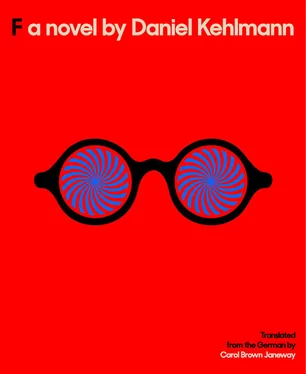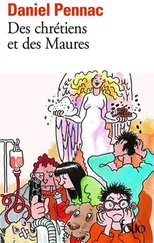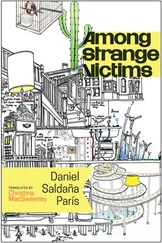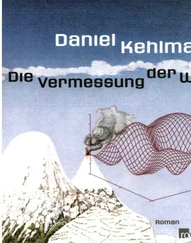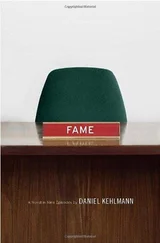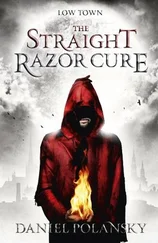“What was it all about? The Tower, the Five of Swords, and was that really the Moon or was it actually the Sun? And what did it mean, anyway?”
“That he couldn’t read a thing.”
“But my future!”
“Seek it out yourself. Seek out the one you want.”
She wondered why Arthur seemed so relieved. She would have liked to take a trip on the ghost train, but he suddenly seemed to be in a hurry. They walked to the parking lot. He hummed to himself quietly all along the way, and was still smiling as he unlocked the car.
“I have a house,” he said as they drove off. “It’s by a little lake, and there isn’t another house to be seen in any direction. When I’m there, I can work all day. It rains a lot. I thought nature would do me good, but that was before I knew that nature mostly consists of rain. Sometimes I take a trip somewhere, and then I come back again. For a long time my work was a cut above average, then it wasn’t anymore, and now all I do is read other people’s books. Books that are so good, I could never have written them myself. You asked what I do — well, that’s what I do.”
“That’s how you spent all your time?”
“It went quickly.”
“Where are we off to now?”
Arthur didn’t answer. For a time they drove in silence.
Then he braked and parked the car. Marie looked around. She’d been here with her class before, and not too long ago, on a school outing.
“Are we going to the museum?”
“Yes.”
Marie sighed.
They got out and went up a marble staircase and then down a long corridor.
“I’ve got to get back soon,” she said. “Homework.”
“Do you get a large amount of it?”
She nodded. It was Saturday, and luckily they never got assignments over the weekend. “Yes, a very large amount.”
What gives with Matthias’s birthday party??? wrote Lena.
Yeah yeah yeah later , wrote Marie.
Pictures hung one smack against the next, some of them just had lines, others had blotches, and on some of them you could see actual stuff: landscapes, buildings, even faces. There were whirling things and whizbangs and torrents and explosions of color. Anyone who was interested in this sort of thing, she thought, would certainly be interested here. But she wasn’t that person.
“I really have to get home.”
Arthur stopped in front of a picture. “Look at this.”
She nodded. It had a gold frame and it featured the sea. There was also a ship.
“No,” said Arthur. “Look at it.”
The sea was blue the way all seas are blue, under a cloudless sky and a big sun. The ship was being followed by a whole swarm of seagulls.
“No,” said Arthur. “Really look!”
In fact, the sea wasn’t all blue. There was foam on the waves, and the water had darker and lighter areas. And the sky had lots of colors in it too. Right on the horizon there was a sort of misty transitional space, and around the sun everything dissolved into a thick impasto of white. When you looked at it, it was like being dazzled. And yet it was all just bits of color.
“Yes,” said Arthur. “That’s it!”
The ship had a long keel, five smokestacks, and portholes that sparkled. Little lines of flags fluttered in the wind, people were crowded onto the decks, and the stern sported an anchor on its own substructure.
Out in front, in the bow, was a piece of sculpture: one of those over-sized bent watches, like the ones Marie had seen on slides in school, some very famous artist had made them but she couldn’t remember his name. She looked at the little plaque on the wall: Sea Voyage with Expensive Sculpture. H. Eulenboeck, 1989 .
She stepped even closer, and immediately everything dissolved. There were no more people anymore, no more little flags, no anchor, no bent watch. There were just some tiny bright patches of color above the main deck. The white of the naked canvas shone through in several places, and even the ship was a mere assemblage of lines and dots. Where had it all gone?
She stepped back and it all came together again: the ship, the portholes, the people, even though she’d just seen that none of it was even there. She took another step back, and now it seemed as if the picture were telling her that whatever it was communicating to her had nothing to do with what it was actually portraying. It was some kind of a diplomatic message that seemed to be contained within the brilliance of the light, the vast expanse of the water, or the distant trajectory of the ship itself.
“Fate,” said Arthur. “The capital letter F. But chance is a powerful force, and suddenly you acquire a Fate that was never assigned to you. Some kind of accidental fate. It happens in a flash. But the man could certainly paint. Think about that, and don’t ever forget it. The man could paint.”
“Who?”
“Ivan.”
“But that’s not by Ivan.”
Arthur stared hard at her. She waited, but he didn’t say a word.
“Can we go now?” she asked.
“Yes,” he said. “I’m going to take you home.”
As Marie and Matthias reached the presbytery, Eric and Martin were fighting again. There was nothing unusual about this, it was pretty standard.
“Good that I’m moving out!” yelled Eric.
“I’m not stopping you. What I truly don’t need here is some kind of fanatic. How can anyone even begin to assert—”
“That God performs miracles?”
“God does not perform miracles. The minute you start with miracles, you cannot begin to explain why He fails to make them most of the time. If He saves you, why didn’t He save everyone else? Because you’re more important?”
“Maybe.”
“You’re not serious, are you? You mean He sent a complete economic crisis just to rescue you from the mess you’d gotten yourself into? You’re not just saying that, you actually mean it?”
“Why not? Why shouldn’t it have come just to save me personally, why not?”
“Because you’re not that important!”
“Obviously I am. Otherwise it wouldn’t be—”
“That’s a totally circular argument!”
“You people always say that His ways are not ours to know. You keep telling us that no one can predict how He will steer our fate and by what means.”
“And Ivan? Did he disappear just so that you could grab his paintings and use the proceeds to pay the interest?”
“You may not say any such thing!”
“ You were the one who said it!”
“I never said that!”
“It follows implicitly from what—”
“We were twins. You don’t understand. I’m not just me, and he’s — well, he wasn’t just him. In a certain way we were always just one person. It’s hard to explain.”
“Every day!” said Martin to Marie. The acolyte held out the white shirt to him, and he panted as he slipped his arms into the sleeves. “Every day he explains to me that God watches over the world and over him in particular. Every day!”
“He didn’t want to baptize me!” cried Eric. “I had to go to another parish. My own brother didn’t want to baptize me!”
“Every day he stands in front of me in that checked shirt of his and says that God sent a financial crisis just to save him.”
“Go play with your cube, and leave me in peace.”
“The cube isn’t a plaything.”
“No, it’s a serious sport, really hard stuff!”
“Save yourself that tone of voice! I’m back at number twenty-two again!”
“On which list?” asked Marie. She knew the answer, but she also knew how much Martin liked repeating it.
“The national one!”
The acolyte put the stole around Martin’s shoulders. He was an unprepossessing young man with whom she’d had a brief conversation the week before. It hadn’t been easy, because at first he’d been so shy, but after she’d smiled at him twice, he’d immediately asked her to go out with him. She’d tried to say no as nicely as she could, but he was stricken anyway, and since then he’d avoided her. Martin had gotten to know him at the Catholic Youth. There was a hole in his right nostril from which a ring had recently been removed, and his name, if she remembered correctly, was Ron.
Читать дальше
